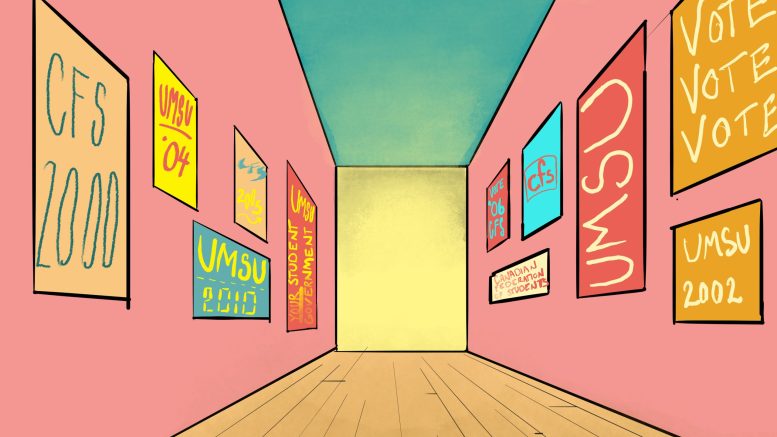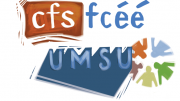The University of Manitoba Students’ Union (UMSU) held an online referendum on Oct. 27 and 28, which asked students to vote on whether UMSU should remain a member of the Canadian Federation of Students. Just over 54 per cent of the 5747 members who voted chose not to remain a part of the federation.
UMSU president Jaron Rykiss and the UMSU board supported the “vote no” side. He said the vote no team’s goal was to provide students with objective information about why it was in students’ best interest to leave the Canadian Federation of Students.
Rykiss did not offer any opinions on the side advocating to remain in the federation, #yestoCFS, but he said he was happy to see that some students took up the “yes side” in the referendum process.
The referendum results come as the Canadian Federation of Students sues UMSU over nearly $1 million in alleged unpaid membership fees.
Rykiss did not comment on how the referendum results might affect the lawsuit, but stated that under UMSU bylaws, the union is officially no longer a part of the federation.
Rykiss said that UMSU will travel to Ottawa next week to present the referendum results to the federation.
“The [Canadian Federation of Students] must accept our motion to withdraw, acknowledge the results of our democratic and court-upheld referendum and then the [federation] membership must vote to approve our withdrawal,” he said.
Although Rykiss is adamant that the federation must accept the referendum results, Canadian Federation of Students bylaws state that votes to decertify may only be conducted using paper ballots at voting stations.
While UMSU’s vote was conducted entirely online, the federation’s bylaws state that voting to decertify must be done on paper, and “cannot be done in any other manner.”
Rykiss said that UMSU has attempted to put forward a motion regarding online voting twice, but that both attempts were ignored by the Canadian Federation of Students.
He said that although the federation’s bylaws do not allow online voting, the referendum was conducted according to UMSU bylaws, a process that Rykiss claims was “protected by the UMSU Act.”
The UMSU Act states that UMSU must affirm membership in external organizations by a majority vote of its council every two years. If UMSU does not affirm membership in an organization, it must take all required steps to end that membership.
At the same time, federation bylaws stipulate that each member is responsible for supporting its mission and by abiding by all provisions of its bylaws.
“The [Canadian Federation of Students] will either accept the results or they won’t,” Rykiss said.
“Our student body [has] made it very clear what they want.”
Before the referendum went to a vote, an injunction by the Canadian Federation of Students threatened to cancel the referendum.
On Oct. 14, the injunction was filed in an attempt to stop the referendum from happening, which temporarily suspended campaigning on both sides.
The Manitoba Court of King’s Bench ruled that the referendum would proceed as planned. Judge Jeffrey Harris wrote in his decision that the federation’s attempt to stop the referendum would “silence the voice of UMSU’s members.”
Nathan Dueck, a representative from the #yestoCFS side of the campaign, said that he did not know why the Canadian Federation of Students attempted to stop the referendum with an injunction.
Dueck said he was “taken aback” by the vote no side’s tactics during campaigning.
He claimed that early in the campaign, #yestoCFS was forced by the chief returning officer (CRO) — a neutral contractor tasked with overseeing the referendum — to remove its previously CRO-approved signs that featured dark green lettering from campus. This occurred after the vote no side complained that it had already been approved to use the colour green for campaigning.
According to the campaign rules, neither side is allowed to create materials that could cause a reasonable person to confuse one side with another. Dueck does not disagree with the rule, but in his opinion, the campaign materials did not look alike.
Dueck said that this complaint about the colour green also forced #yestoCFS to redesign all of its online content. UMSU also initially refused to play CRO-approved #yestoCFS TV advertisements on campus screens.
Rykiss said that the dispute over #yestoCFS’s colours was a matter of policy, and claimed that the initial TV advertisements put forward by the opposing side were not displayed because they contained inaccurate information.
In Dueck’s opinion, the UMSU-created referendum rules disadvantaged the vote yes side. He emphasized that he does not fault the CRO, but is “unhappy with the rules he has to enforce.”
“I am disappointed with the fact that UMSU is clearly trying to disadvantage the pro-[Canadian Federation of Students] side as much as possible,” Dueck said.
“When it comes to the referendum, they should look past their own preferences about whether to stay in [the federation] and primarily work to ensure that both voices are given an equally fair hearing, and I think they failed their student body by failing to do so.”





